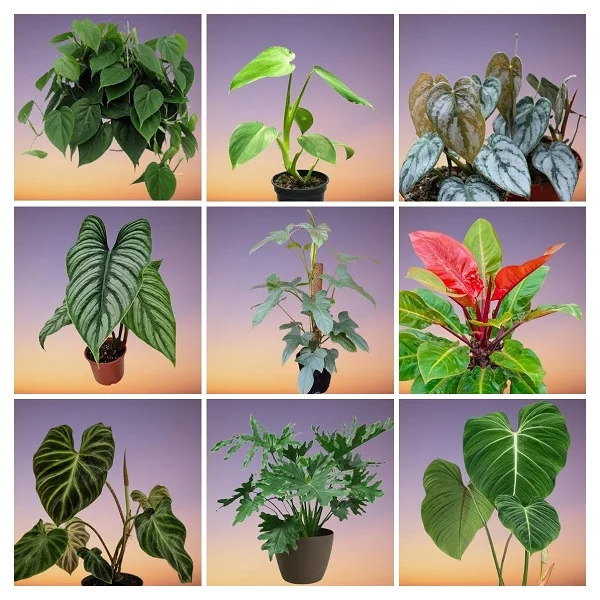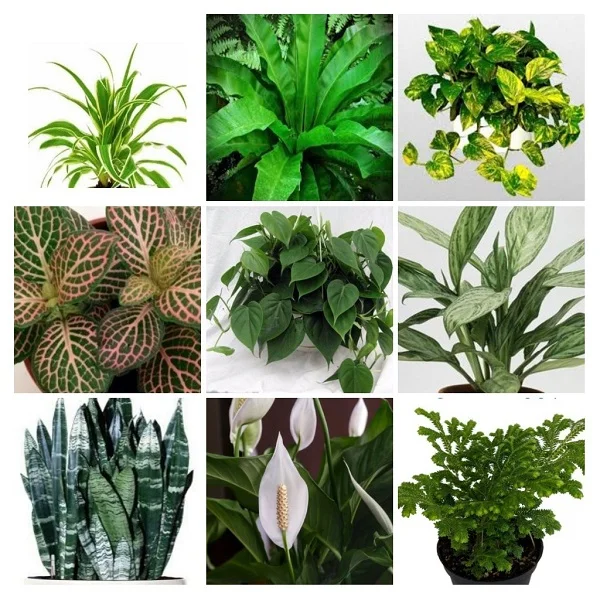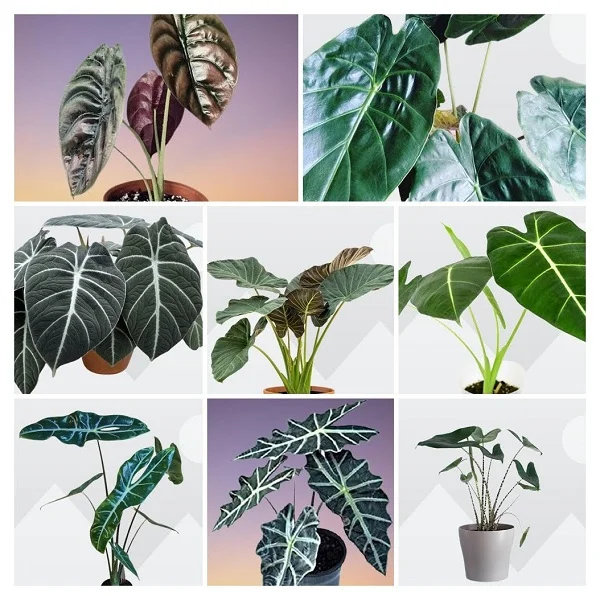15 Pet-friendly Houseplants with Names & Pictures: Plants Safe for Cats and Dogs
Some links in this post may be affiliate links
Sometimes cats and dogs can decide to chew or play with your plants. It is a good idea to keep your plants out of the reach of the pets.
It is even better to grow pet-friendly plants so that should your pets chew on them, you do not need to worry about their safety.
We have herebelow listed 15 of the best plants that are safe for cats, dogs and other pets. Keep reading for the complete list.
15 Pet-safe Indoor Plants
Best pet-friendly houseplants are Areca Palm, Spider Plants, African Violets, Emerald Ripple Peperomia, Calathea, Polka Dot Plants, Chinese Money Plant among others.
1. Areca Palm (Dypsis lutescens)
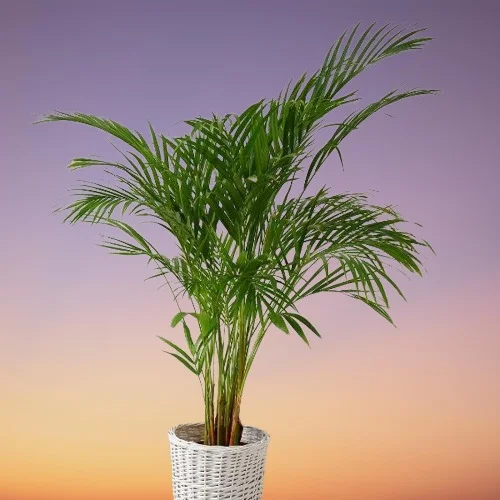
Areca Palm also called Butterfly Palm or Golden Cane Palm is among popular, easy-care indoor palms with air-cleaning abilities, getting rid of formaldehyde, xylene and toulene.
Golden Cane Palm is non-toxic to humans and pets as indicated by ASPCA. It is safe for cats, dogs and other pets.
Dypsis lutescens thrives in bright indirect light, average warmth and humidity, and moderately moist, rich, well-drained soil coupled with monthly feeding in spring and summer. Learn how to grow and care for Areca Palm.
2. Spider Plants (Chlorophytum comosum)
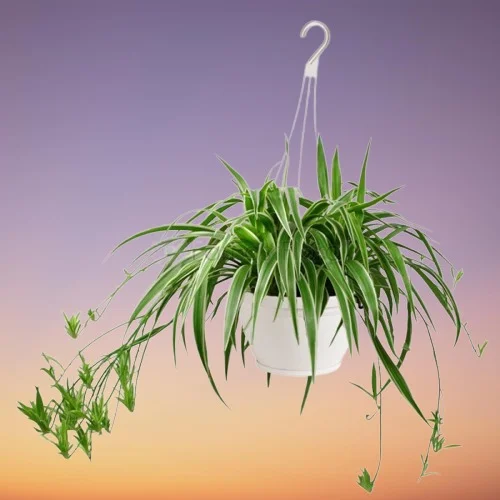
Spider Plant also called Airplane Plant, Spider Ivy or Ribbon Plant is a fast-growing, air-cleaning, extremely adaptable plant that will grow in hot or cool rooms, in sun or shade and it will withstand dry air. It is among hard to kill plants that will withstand some level of neglect.
Spider Ivy is non-toxic to both humans and pets according to ASPCA. It is excellent for a home with children, cats, dogs and other pets.
Chlorophytum comosum prospers in bright indirect light, average warmth and humidity, and consistently moist, rich, well-drained soil coupled with monthly feeding in the growing season. Read more on how to grow and care for Spider Plant.
3. Goldfish Plant (Columnea gloriosa)
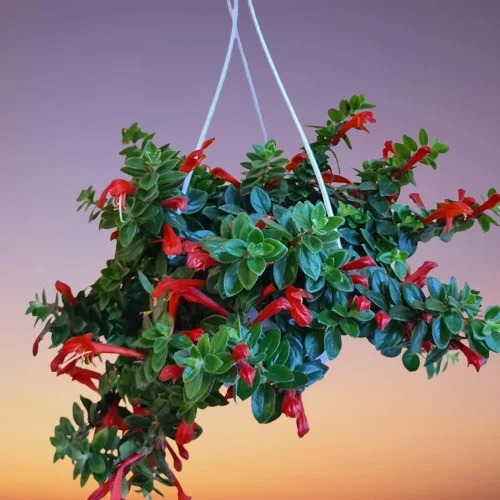
Goldfish Plant is among popular flowering plants and bears abundant yellow or orange-red tubular flowers year after year.
Columnea are non-toxic to humans and pets as indicated by ASPCA. They are safe enough to be grown in any space where there are children, cats, dogs and other pets.
Columnea gloriosa flourishes in bright indirect light, warm and humid conditions, and moderately moist, fertile, well-drained potting soil coupled with fortnightly feeding in the growing season. Learn more on how to grow and care for Goldfish Plant.
4. African Violets (Saintpaulia ionantha)
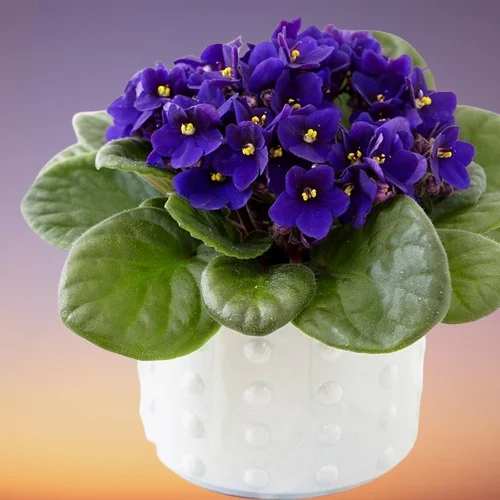
African Violets are non-toxic to both humans and pets as listed by American Society for the Prevention of Cruelty to Animals. They are safe to children, cats, dogs and other pets.
This native of Tanzania is among favorite plants for limited spaces in the home and other places on account of its compact size.
Saintpaulia ionantha thrives in bright indirect light, average warmth and humidity, and consistently moist, rich, well-drained soil coupled with fortnighly feeding in the growing season. Read more on how to grow and care for African Violets.
5. Emerald Ripple Peperomia (Peperomia caperata)
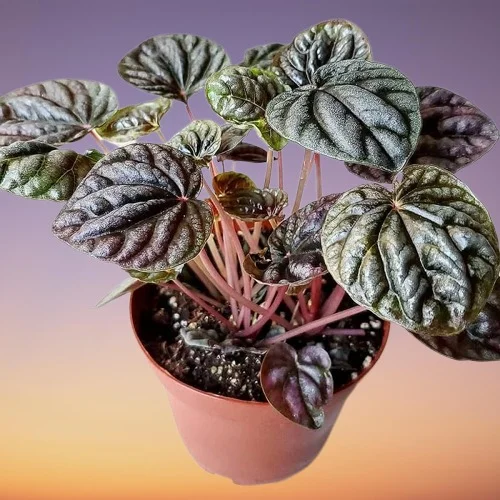
Emerald Ripple Peperomia is a compact, popular Peperomia varieties and is loved for its deeply corrugated, heart-shaped leaves and easy-care nature.
Peperomia caperata is non-toxic to humans, cats, dogs and other pets as indicated by Leaf and Paw site. They are safe to grow in a home with children and pets.
Peperomia caperata requires warm and humid conditions, medium to bright indirect light and moderately moist, fertile, free-draining soil coupled with regular feeding during the growing season. Learn more on how to grow and care for Emerald Ripple Peperomia.
6. Calathea Plants
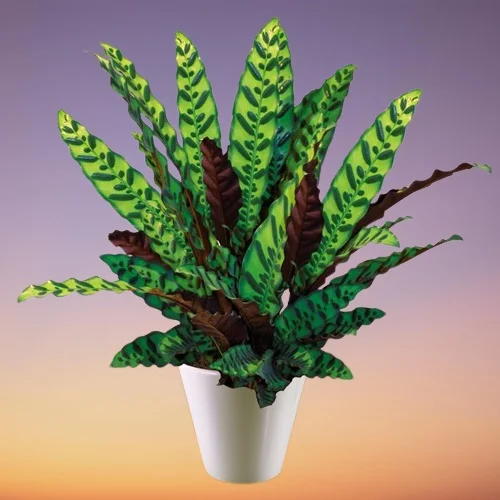
Calathea are non-toxic to cats, dogs and other pets according to ASPCA. You can grow these plants in a home with pets without any worries of poisoning.
Calathea varieties are striking plants with ornately patterned leaves that will add a splash of color to any space, and make a spectacular focal point in any room.
Calathea thrive in medium to bright indirect light, warm and humid conditions, and moderately moist, fertile, well-drained soil coupled with regular feeding in the growing season. Read more on how to grow and care for Calathea Plants.
7. Polka Dot Plants (Hypoestes phyllostachya)
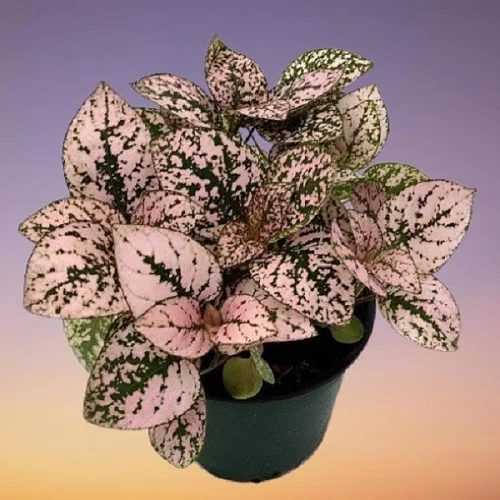
Polka Dot Plant or Freckle Face are popular plants grown for their beauty, with spotted leaves and beautiful coloring which is vivid in bright light but all-green in a shady place.
Freckle Face are non-toxic to humans and pets as indicated by ASPCA. They safe to grow in a home with cats, dogs and other pets.
Hypoestes phyllostachya prefers bright light with some sunlight, warm and humid conditions, and consistently moist, fertile, well-drained soils coupled with fortnightly feeding during the growing season. Learn more on how to grow and care for Polka Dot Plant.
8. Maranta Plants (Maranta leuconeura)
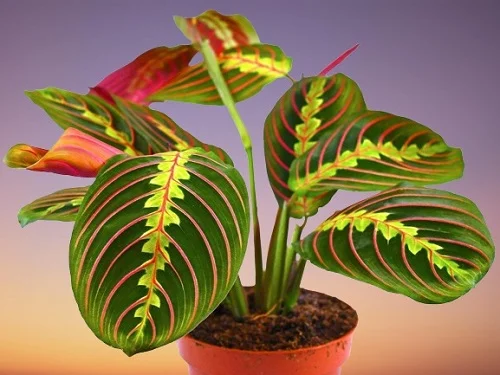
Apart from their curious habit of folding and raising their leaves at night, Marantas are non-toxic to humans, cats and dogs as per ASPCA.
Maranta are native to tropical Central and South America and the West Indies. They are named for Bartolomeo Maranta, an Italian physician and botanist of the 16th century.
Maranta Plants blossom in partial light, a warm and humid enviroment and consistently moist, fertile, well-drained soil coupled with monthly feeding during the growing season. Learn how to grow and care for Maranta.
9. Chinese Money Plant (Pilea peperomioides)
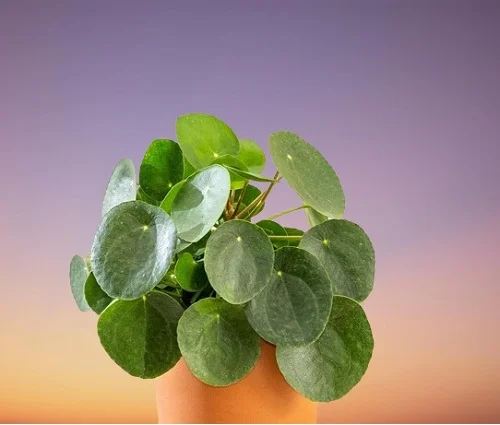
Chinese Money Plant also called Missionary Plant, Pancake Plant, Friendship Plant or UFO Plant is among well-liked succulent plants and bears round, dark-green leaves which are held on long petioles.
According to ASPCA, Missionary Plant is non-toxic to humans and pets. It is one of the favored pet-safe plants for cats and dogs.
Pilea peperomioides grows best in bright indirect light, average warmth and humidity, and moderately moist, fertile potting soil coupled with quarterly feeding in the growing season. Learn more on how to grow and care for Chinese Money Plant.
10. Nerve Plants (Fittonia)
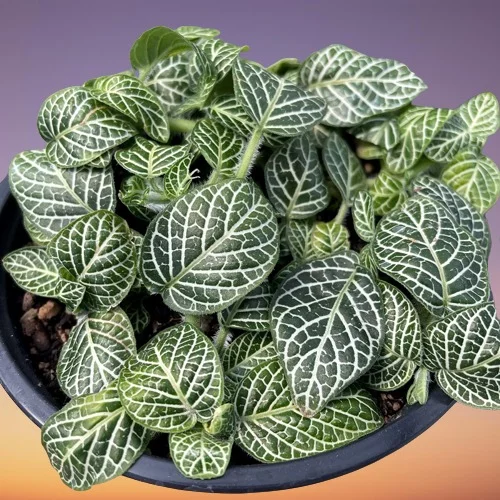
Nerve Plants also called Net Plant, Lace leaf or Snakeskin are compact, low-growing plants, easily recognisable by their leaves which bear a network of white, pink or red veins.
Net Plants are non-toxic to humans and pets as outlined by ASPCA. The plants are ideal for growing in any space with children, cats, dogs and other pets.
Fittonia Varieties thrive in medium to bright indirect light, warm and humid conditions, and consistently moist, rich, well-drained soil coupled with monthly feeding in the growing season. Learn how to grow and care for Nerve Plants.
11. Watermelon Peperomia (Peperomia argyreia)
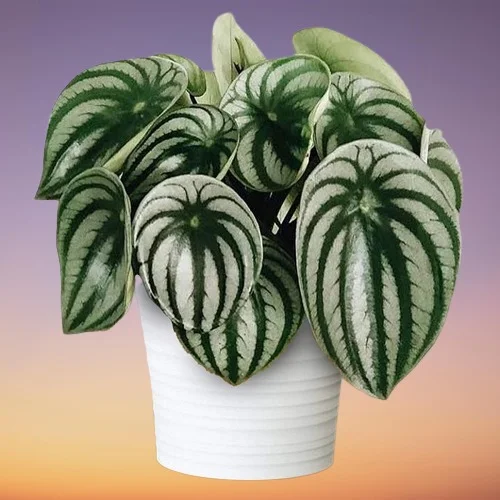
Watermelon Peperomia also called Watermelon Begonia is a popular plant on account of its ease of care and compact size. It bears slightly-fleshy, oval-shaped, green leaves, strikingly marked with curved silver stripes resembling the skin of a watermelon and hence the common names.
As indicated by ASPCA, Peperomia argyreia is non-toxic to both humans and pets. It is among popular plants for a home with children, cats, dogs and other pets.
Peperomia argyreia requires bright indirect light, warm and humid conditions, and moderately moist, fertile, free-draining soil. Read more on how to grow and care for Watermelon Peperomia.
12. Echeveria Plants
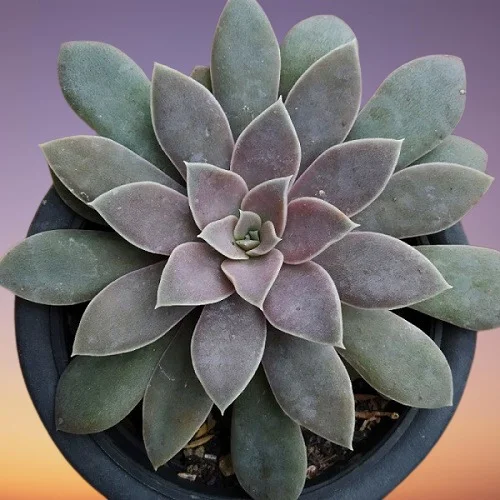
Echeveria Plants come in many forms and are generally small-sized plants that are ideal for limited spaces in the home, office and other suitable places.
Echeveria are non-toxic to humans and pets as indicated by ASPCA. These plants are pet-friendly and perfect for growing in any space.
Echeveria Plants thrive in bright light with some sunlight, average warmth and humidity, and moderately moist, well-drained, succulents soil coupled with regular feeding in the growing season. Learn more on how to grow and care for Echeveria Plants.
13. String of Rubies Plant (Othonna capensis)
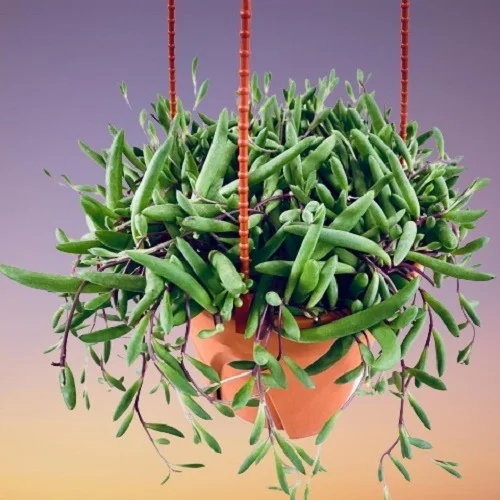
String of Rubies Plant also called String of Pickles, Little Pickles or Ruby Necklace is one of the string of plants, characterized by thin, oval-shaped leaves and reddish-purple stems. The bean-shaped leaves turn a bright ruby red when the plant is grown under bright sunshine.
Ruby Necklace is non-toxic to both humans and pets. It is safe for children, cats, dogs and other pets in the home.
Othonna capensis grows best in very bright light, average warmth and humidity, and moderately moist, fertile, well-drained soil with regular feeding during the growing period. Learn how to grow and care for String of Rubies Plant.
14. Air Plants (Grey Tillandsia)
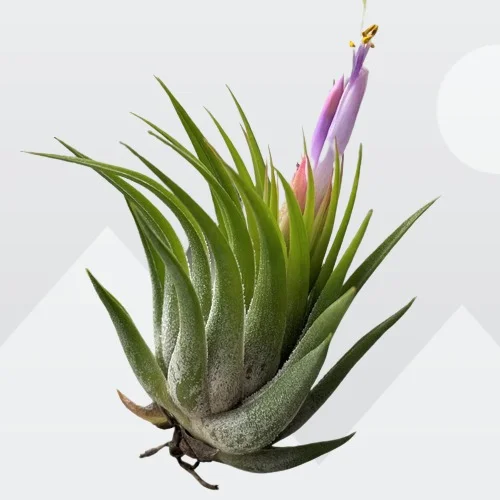
Air Plants also called Grey Tillandsia are popular Bromeliads varieties that do not need to be planted in a potting medium, as they bear furry scales on their foliage through which they take up water and nutrients.
Grey Tillandsia are non-toxic to humans and pets. These plants are are safe to grow in the home with children, cats, dogs and other pets.
Air Plants flourish in bright indirect light, warm and humid conditions, and fortnightly feeding during the growing season. Read more on how to grow and care for Air Plants.
15. Ponytail Palm (Beaucarnea recurvata)
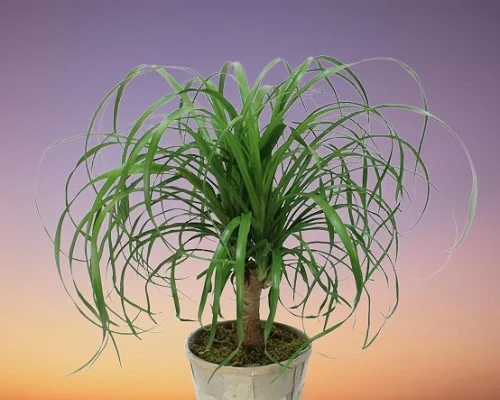
Ponytail Palm also called Elephant Foot Plant is a hardy, slow-growing, low-maintenance, succulent plant with a large swollen bulb which stores water placing it among drought-tolerant plants with low water needs.
Elephant Foot Plant is non-toxic to both humans and pets as indicated by ASPCA. It is safe to grow in a home with children and pets.
Beaucarnea recurvata thrives in bright light with some sunlight, average warmth and humidity, and moderately moist, rich, well-drained soil coupled with monthly feeding in the growing season. Learn more on how to grow and care for Ponytail Palm.
